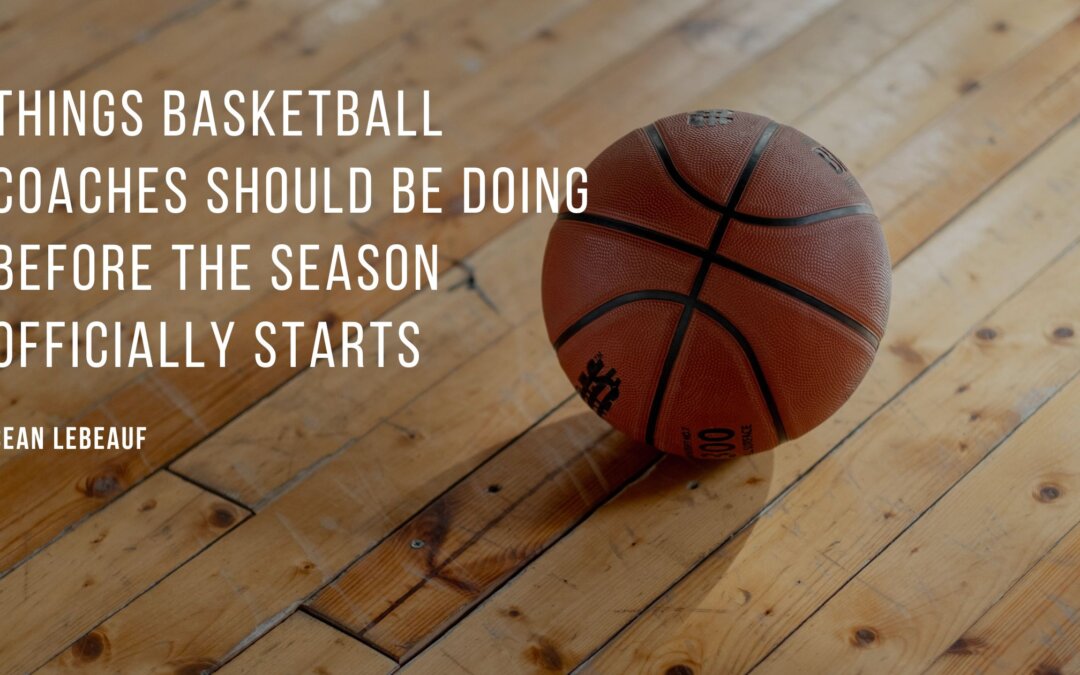In the dynamic world of basketball coaching, the period leading up to the official start of the season is a critical phase where groundwork is laid for success on the court. Listed below are some key actions coaches should prioritize during this crucial pre-season window to ensure a well-prepared and cohesive team once the official tip-off arrives.
Evaluate and Set Goals:
Before the season kicks into high gear, take the time to evaluate the strengths and weaknesses of the team. Reflect on the previous season’s performance, individual player progress, and improvement areas. Based on this assessment, establish clear, measurable, and realistic goals for the upcoming season. Setting team and individual objectives creates a roadmap for success and provides a benchmark for progress throughout the season.
Develop a Comprehensive Training Plan:
A well-structured training plan is the backbone of a successful basketball season. Consider the team’s specific needs, focusing on physical conditioning and skill development. Design drills that enhance individual strengths and address collective challenges. Balance the intensity of workouts to gradually build endurance, ensuring that players peak at the right moment during the season. A thoughtful training plan sets the foundation for improved performance and minimizes the risk of injuries.
Build Team Chemistry:
Team chemistry is often the intangible factor that sets successful teams apart. Foster a positive and collaborative team culture by organizing team-building activities, both on and off the court. These activities can include friendly competitions, community service projects, or even casual team dinners. Strengthening the bonds among players encourages effective communication, trust, and a shared commitment to success.
Analyze Opponents and Adjust Strategies:
A seasoned basketball coach understands the importance of strategic planning. Analyze the strengths and weaknesses of upcoming opponents to tailor game strategies accordingly. Keep abreast of changes in the league landscape, study recent match performances, and identify areas where the team can exploit opportunities or shore up vulnerabilities. Adjusting game plans based on thorough analysis can provide a crucial edge during the season.
Assess Player Fitness and Injury Prevention:
Player health is a top priority for any basketball coach. Conduct thorough fitness assessments to ensure that players are in optimal condition for the demands of the season. Work closely with medical professionals to identify potential injury risks and implement preventative measures. Customized conditioning programs and injury prevention strategies can significantly contribute to the team’s overall performance and longevity throughout the season.
Refine Offensive and Defensive Strategies:
Use the pre-season period to fine-tune offensive and defensive strategies. Drill players on both individual and team plays, ensuring that everyone is well-versed in their roles. Experiment with different lineups during practice to assess compatibility and effectiveness. A well-coordinated team, adept at seamlessly transitioning between offensive and defensive plays, poses a formidable challenge to opponents.
Communicate Expectations Clearly:
Effective communication is paramount for a coach. Clearly communicate expectations regarding behavior, commitment, and performance standards. Establish an open-door policy for players to voice concerns or seek guidance. A team that operates with a shared understanding of expectations is more likely to navigate challenges cohesively.

